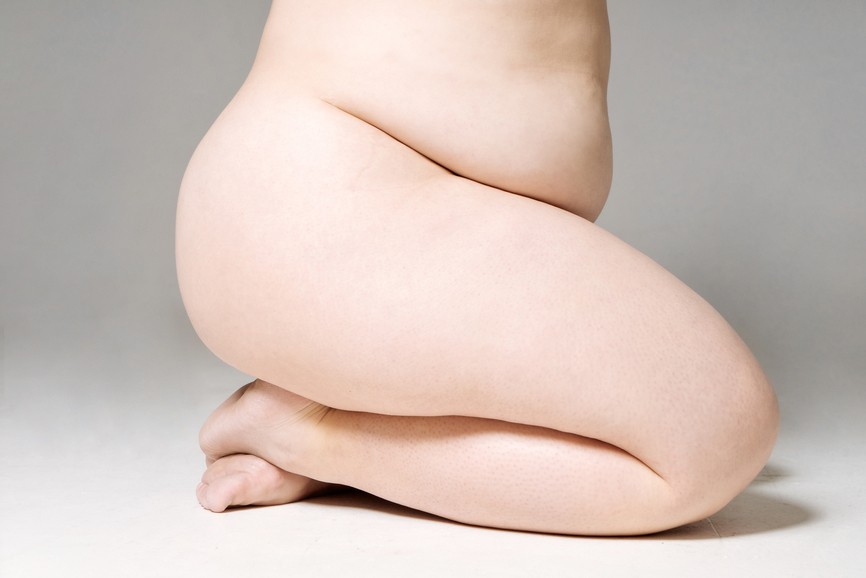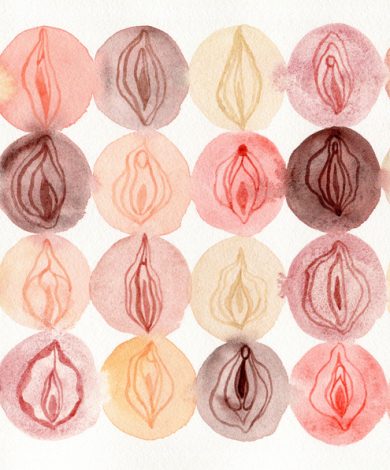Proper hydration leading up to and after birth is vital to your recovery. Period. And while…
Body
Why Aren’t We Told What Will Happen to Our Bodies Postpartum? 4 Insane Things That Are Part of Your Healing
July 26, 2021 • By Kelsi Ludvigsen

The second we find out we’re pregnant we download all of the apps that tell us what size fruit the baby is. Right? What’s great about them is that while they show us what’s happening with the baby, there’s also lots of helpful info about what’s happening to you too.
The hormonal shifts
The increased blood volume and circulation
The breast changes
The many miraculous ways our bodies adapt and transform in pregnancy
I really appreciated this.
But once I gave birth, I couldn’t help but notice that information disappeared. Those same apps now informed me exclusively about the baby.
Baby’s sleep
Baby’s feeding schedule
Baby’s growth
Baby’s developmental leaps
Baby. Baby. Baby.
Where was the app informing me of my daily or weekly body changes? Because I felt anything but “back to normal” and I couldn’t stop asking, “Why didn’t anyone tell me?”
I spent many middle of the night feeds searching for an app that would tell me what was going on inside me.
Why am I still peeing so much two weeks after birth?
What was happening to my uterus? Why is there so much cramping?
And what on earth is lochia?
Becoming a mother is filled with so many unknowns. When you add in the fact that we have no guidance or support around what’s happening with our bodies, it becomes even more overwhelming. And we are overwhelmed enough!
So, to help you feel less freaked out and more informed, here are four things that happen postpartum that feel insane, but are actually normal.
Postpartum Bleeding
Postpartum bleeding (aka lochia) is expected, but no one really describes the reality of it. One of the main reasons for this heavy bleeding is the dinner plate sized wound from where the placenta was attached to the uterine wall. We lose about 1/10 of our blood supply from this open wound! So, whether you had a c-section birth or vaginal, everyone has it. So if I’m bleeding from a wound, why is it called lochia? Because it’s not just blood!
Days 1-4 the lochia is usually red and is a mix of blood, fragments from the uterus lining, and mucus. Days 5-9 it can change color to be yellow or pale brown and make up of mucus, blood, and dead cells. Finally, days 10-14 it’s mostly white and contains more mucus. Lochia can last up to 5 weeks and it can take an average of 6 weeks for the placental wound to heal. This is just an average, because it depends on how much we rest, nourish ourselves, and get the support we need. Not sure what you need postpartum? This article has you covered.
Lactation
You’ve probably heard your body will produce colostrum first and then transition into mature milk. Something you probably don’t know is that producing breast milk uses 30% of your body’s energy, while your brain only uses 20%. Yes, lactating takes more energy than your BRAIN! This is why snacks and eating enough food are vital! A healthy mother will make 500-800 ml of milk a day which requires at least 700 cal/day. So make sure you are stocking up on all the delicious snacks that give you energy. These snack bites are perfect for a quick, one handed pick me up.
Immunity
This is really interesting, ready? Your baby is half you and half of the sperm bearer, so your body recognizes only half of the baby and the other half is foreign. This means the pregnant person’s immune system needs to calm the eff down so that it doesn’t reject the fetus. Makes sense, right? This is why our immune systems are suppressed and weaker during pregnancy. But what we don’t realize, and no one tells us, is that it can take over 6 months for our body’s immune system to return to our normal function. So it’s important that we eat foods that support our immune system postpartum.
- Fresh produce like citrus and leafy greens that are high in vitamin A & C. Also, raw honey and fresh ginger.
- Make sure to get sufficient Vitamin D. Your doctor can check your levels and either take a supplement or get a daily dose of sunshine.
- 70% of our immune system lives in our gut. Take a probiotic, drink bone broth, and eat fermented foods to support your microbiome.
- Stress has a huge impact on our immune health. Get as much sleep as possible (which may not be much/enough right now), include some mindful movement, and remember to breathe.
Fluids
I hate to say it, but you know how you had to pee every 20 min in your 3rd trimester? That doesn’t end once you give birth. You actually retain 6-8 liters of body fluids that need to get out. It is not uncommon in the first two weeks postpartum to have a urine output of 3000 ml (100 oz) a day! So hang in there, just a couple more weeks of middle-of-the-night bathroom runs! It’s still important to stay hydrated and if you’re getting bored with plain water try this Postpartum Aid and power up your lemon water with this recipe.
These are only four of the many changes we face during the fourth trimester. Most of which are never mentioned in our pregnancy books or hospital pamphlets. This information is vital for us to understand why we need rest, why it takes time for the body to heal, and why we deserve support during those sacred, vulnerable, insane months after birth.
As the wise Maya Angelou once said, “When you know better, [you can] do better.” Knowledge is power for any and all postpartum people.
Sources:



